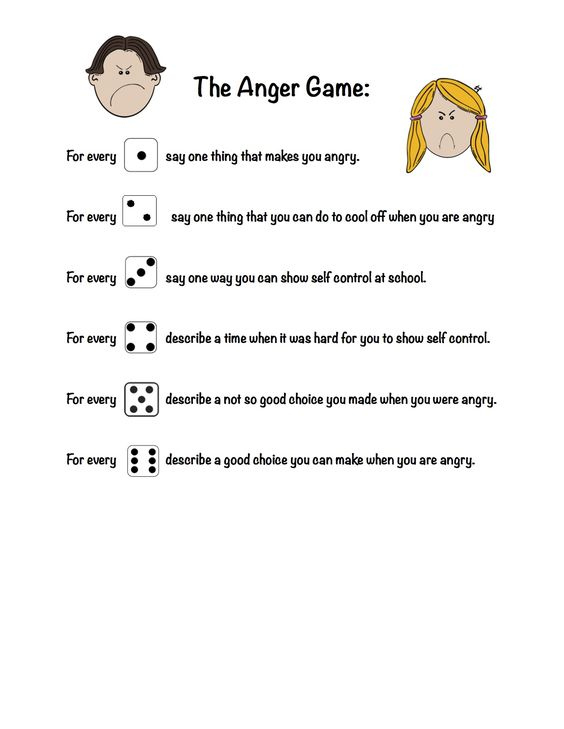In the quest for personal growth and spiritual development, the Bahá’í teachings offer profound insights, particularly concerning the management of one of humanity’s most visceral emotions: anger. This exploration serves as a journey through the intricate landscape of human emotion, where anger can either become a destructive force or a catalyst for transformative action. The Bahá’í perspective invites us to see anger not merely as a primal instinct but as an opportunity for higher understanding and self-control.
At the heart of Bahá’í teachings is the notion that the human experience is marked by an intrinsic duality, a perpetual struggle between the aggressive and the conciliatory within each individual. In this duality, anger emerges as an unrefined gemstone, possessing the potential for beauty when tempered with wisdom and restraint. The challenge lies in refining this gemstone through spiritual and practical disciplines, aligning our actions with the principles of love, unity, and equity that Bahá’ís hold sacrosanct.
To master anger, one must first acknowledge its existence. Bahá’í writings assert that recognizing our emotions is a pivotal step in cultivating emotional intelligence. Anger, when left unchecked, can resemble a raging tempest—indomitable and chaotic. Nevertheless, when approached with mindfulness, it can transform into a gentle breeze that fosters patience and understanding. The Bahá’í principle of reflection encourages individuals to pause and contemplate their feelings, fostering an environment where constructive dialogue can flourish.
Moreover, the cultivation of patience is paramount in the Bahá’í framework. Patience is akin to a gardener tending to a young sapling; it requires nurturing, care, and the acknowledgment that growth is a gradual process. In the face of adversity or provocation, responding with patience allows for a space in which one’s better nature can guide reactions, resulting in actions that align with one’s spiritual aspirations.
The Bahá’í teachings further elucidate the transformative power of prayer and meditation. These practices serve as spiritual tools for recalibrating the heart and mind. Prayer is likened to a lifeline, connecting the individual to a higher source of strength and clarity. When one embraces the practice of prayer, anger can evolve into a constructive force, instigating a desire for reconciliation rather than conflict. Additionally, by meditating on the qualities of forgiveness and compassion, one learns to transmute anger into a profound empathy, recognizing that those who incite anger often act out of their own pains and limitations.
In the Bahá’í perspective, forgiveness emerges as a sanctified resolution to conflict. It is not merely the act of letting go but a conscious decision to liberate oneself from the shackles of resentment. Forgiveness is a tapestry woven from threads of understanding, compassion, and love—a reflection of the divine attributes embedded within each soul. Consequently, anger finds resolution not in confrontation or retaliation but in the embrace of forgiveness, paving the way for unity and reconciliation.
Furthermore, the practice of generous kindness towards others serves as both an antidote and a preventive measure against anger. Consider the analogy of a candle; when one’s innate kindness shines brightly, it illuminates the dark corners of conflict, dispelling the shadows where anger thrives. Cultivating kindness diminishes the likelihood of anger’s emergence, as individuals begin to view others through a lens of compassion rather than confrontation. The legacy of this practice resonates deeply within communities, fostering an environment ripe for peace and understanding.
An exploration of the role of community is essential in the Bahá’í approach to anger management. The concept of community is not merely a social construct but a spiritual sanctuary where individuals can grow together, share experiences, and learn from one another. Such interconnectedness fortifies the individual resolve to control anger, transforming it into a collective responsibility. When faced with challenges, the support and counsel of a spiritual family can empower individuals to navigate their emotional landscapes with grace. Consequently, this communal ethos holds the potential to assuage collective anger and guide it toward constructive outcomes.
Ultimately, the Bahá’í teachings underscore the notion that anger can serve as a double-edged sword. It possesses the capability of inciting discord, yet it can also illuminate the path to personal and collective transformation. By delving into the depths of one’s emotional experiences, practicing patience, engaging in prayer, embracing forgiveness, extending kindness, and fostering community bonds, the raw force of anger can be sculpted into a creative energy that promotes growth and understanding.
In conclusion, the journey of mastering anger through the lens of Bahá’í teachings presents an intricate interplay of emotion, spirituality, and community. Much like a sculptor chiseling away at a block of marble, the process requires intention, perseverance, and a vision for the masterpiece that lies within. As individuals commit to this voyage, they not only unlock the potential within themselves but also contribute to a greater tapestry of peace and unity within the world. Thus, anger transcends its primal roots, becoming a spiritual tool—one that invites reflection, cultivates understanding, and ultimately leads to a harmonious existence.
